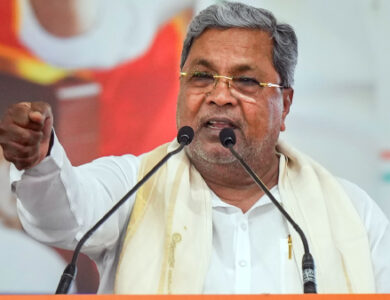Shockwaves in Karnataka: BJP’s Grip Slips, Congress Makes Waves
As the anticipation for the forthcoming Lok Sabha election runs high, a cascade of pre-poll surveys inundates the public discourse. Amidst this flurry, an intriguing revelation surfaces from the Lok Poll survey, offering a nuanced perspective on the BJP’s electoral fortunes in Karnataka.
Contrary to prevailing expectations, the Lok Poll’s findings suggest a potential deviation from the BJP’s past electoral dominance in the state. The survey indicates a projected tally of 11 to 13 seats for the BJP out of the 25 it contests, with its ally JD(S) vying for three seats. Conversely, the Congress party appears positioned to secure 15 to 17 seats, signaling a formidable electoral challenge for the ruling coalition.
Citing a sample size of 1,350 per parliamentary constituency, the Lok Poll underscores its track record of accuracy in predicting Karnataka Assembly election outcomes. This revelation introduces a significant electoral hurdle for the BJP, which had aspired to sweep all 28 seats in alliance with JD(S). Meanwhile, the Congress, contesting independently, aims to capitalize on its governance achievements to boost its electoral prospects.
Campaign narratives diverge sharply, with the BJP foregrounding Prime Minister Modi’s leadership and the government’s developmental agenda, while the Congress endeavors to highlight its track record of fulfilling electoral promises in the state. The Lok Poll identifies five salient factors shaping voter sentiment: unemployment, inflation, leadership preferences, welfare initiatives, and regional identity.
Of particular note is the discernible undercurrent among beneficiaries of government schemes, potentially influencing voting behavior. Notably, discontent within the Vokkaliga community over ticket distribution by the BJP hints at a potential realignment of political allegiances. Additionally, JD(S) leaders’ measured support for the BJP, particularly in constituencies where their influence is palpable, adds another layer of intrigue to the electoral calculus.
Moreover, the consolidation of AHINDA voters, propelled by welfare initiatives, emerges as a significant electoral force. The Lok Poll’s social media update underscores internal fissures within the BJP, raising concerns about vote fragmentation in closely contested constituencies. As the electoral landscape takes shape, Karnataka braces for a keenly contested political showdown with implications extending far beyond its borders.
Here are our final figures for the state of #Karnataka
▪️BJP 11 – 13
▪️INC 15 – 17Sample size: 1,350 per Parliamentary constituency.
Just recalling our Karnataka assembly elections survey that was incredibly spot on. 🙂#LoksabhaElections2024 #Elections2024… pic.twitter.com/xofRxWpntj
— Lok Poll (@LokPoll) April 13, 2024







